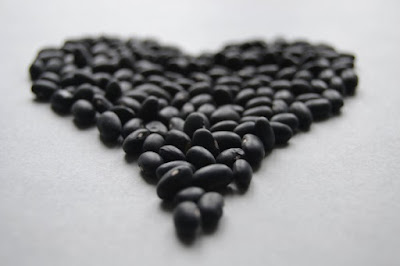Black beans
Black beans and other beans known scientifically as Phaselous vulgaris. (This scientific name refers to the genus and species of the plant; navy, kidney, pinto, etc. are different varieties of beans.
research in comparative genetics has shown that these two types of beans (Phaselous vulgaris and Glycine max) share many interesting genetic aspects. Beans were introduced into Europe in the 15th century by Spanish explorers returning from their voyages to the New World and were subsequently spread to Africa and Asia by Spanish and Portuguese traders.
Black beans could not be more succinctly and descriptively named. They are commonly referred to as turtle beans, probably in reference to their shiny, dark, shell-like appearance. With a rich flavor that has been compared to mushrooms, black beans have a velvety texture while holding their shape well during cooking.
Black beans give the impressive array of antioxidant and anti-inflammatory phytonutrients in black beans, we have not been surprised to see numerous studies connecting black bean intake with reduced risk of certain cancers, especially colon cancer. Chronic excessive oxidative stress and chronic excessive inflammatory are both risk factors for the development of many cancer types.
By increasing the body's supply of antioxidant and anti-inflammatory nutrients, black beans may be able to help lower cancer risk.
Most of the studies we've seen have been studies on laboratory animals, or laboratory studies on different cancer cell types. (In other words, we have yet to see large-scale human studies showing decreased risk of cancer following increased intake of black beans.)
But these preliminary animal and laboratory studies have been relatively consistent in their findings and have shown black beans to inhibit the development of certain cancers and especially colon cancer.
Breast cancer and liver cancer are two additional cancer types that have been studied in animals with respect to black bean intake, although the evidence here is not as strong as evidence in the area of colon cancer.
As our knowledge of black bean phytonutrients increases, we expect to see increasing interest in this important area of health research.




0 comments:
إرسال تعليق